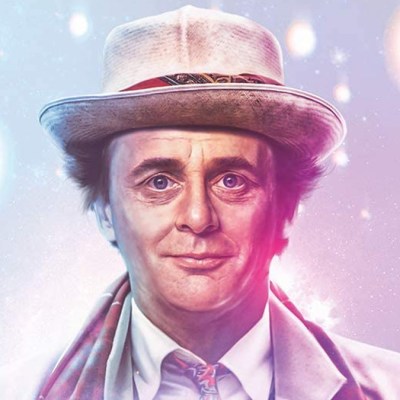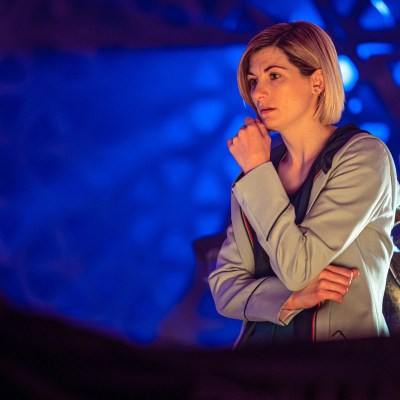Doctor Who’s Best Comfort-Viewing Episodes
With a single choice per Doctor, one fan selects the Doctor Who stories guaranteed to guaranteed to lift their spirits. Add your own suggestions below!

I mean, it’s not like absolutely everything is terrible right now, but certainly a lot of things are and we could all do with a break. As a result, here’s a list of Doctor Who stories – one chosen per Doctor – that I put on for comfort. Sometimes you need something familiar and well-worn to unwind with.
This list is very much subjective, some of it is down to which Doctor Who videos I could afford when I was 10. These stories work for me and it’s unlikely they will work completely for someone else. Also worth mentioning is that this list is incomplete; these are not the only stories I watch for comfort, and indeed sometimes that’s not the reason I watch these stories.
First Doctor: ‘The Aztecs’
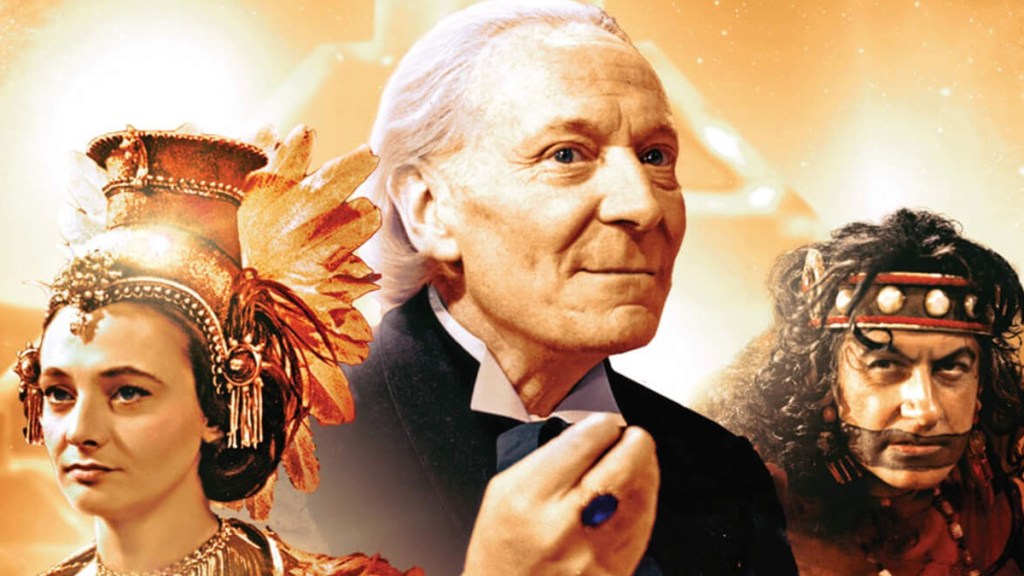
‘The Aztecs’ is a great example of Doctor Who that can be both familiar, endearing and brutal. In this story Barbara is mistaken for the goddess Yetaxa, and attempts to use her influence to stop the practice of human sacrifice. The Doctor rails against changing history, the High Priest plots to reveal Barbara’s ploy. To escape, Ian has to fight to the death, Susan has to avoid an arranged marriage, and the Doctor has to pretend to romance an Aztec woman who might have the key to letting them reach the TARDIS again. It’s all very morally murky yet comes away feeling generous.
A lot of the characters are flawed and interesting. You understand their motives even if you don’t agree with them. The original TARDIS crew, who have hit their stride now, are included in this. The Aztecs are shown to both practice human sacrifice and meet writer John Lucarotti’s description of ‘a highly civilised and cultured race’.
It’s also a well-made show, and if anything the improved picture quality has been cruel to Barry Newberry’s backdrops – not for lack of detail, but for picking out the folds in the material. With the script doing the same for the characters, ‘The Aztecs’ shows us that comforting does not have to equal light.
Second Doctor: ‘The Macra Terror’
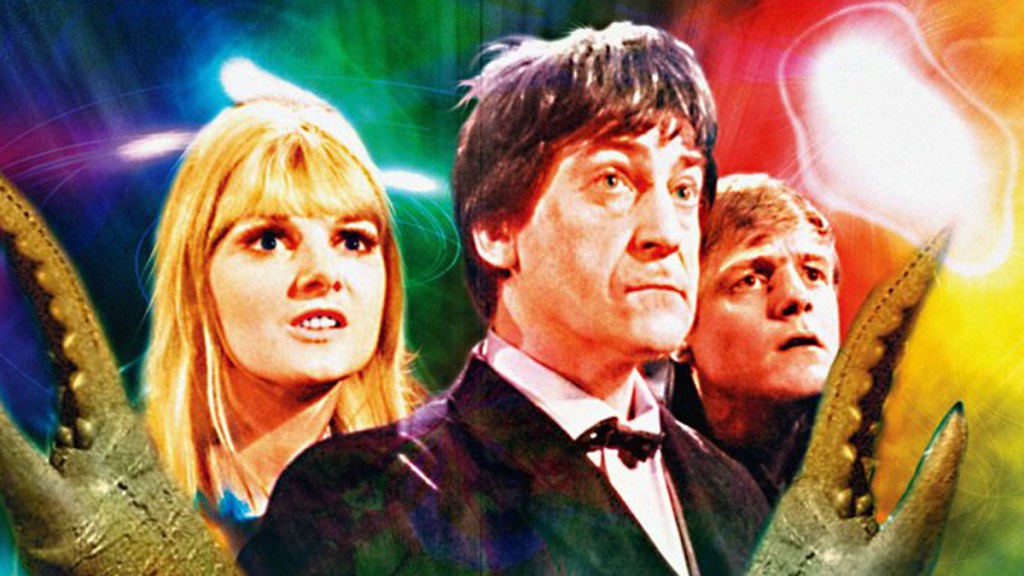
There’s something counterintuitive about choosing a Troughton story with almost no existing pictures because so much of his performance is visual. However, having first experienced a lot of Troughton stories as audio there’s still a lot to admire in his expressive vocal performance.
Also something potentially counterintuitive here is that I’m picking a story outside of the Base Under Siege format that dominated Season 5, which for many people is their platonic ideal of Doctor Who. However I feel that this does a great disservice to a subgenre I’m going to call ‘Weird Troughton’, defined by being an outlier from the series format or featuring Troughton still working out the role (so ‘The Highlanders’, despite being a historical with no science-fiction elements, counts because Troughton is still trying out strange and fun things with the character). ‘The Underwater Menace’ is ridiculous and I love it anyway, David Whittaker very much ploughs his own furrow, and ‘The Mind Robber’ raises the possibility that Doctor Who is a self-aware entity. ‘The Macra Terror’, now available as an animation, is for me one of the best pieces of drama produced from this group, managing to be sinister, fun and have giant crab monsters in it.
It’s an angry take on uniformity, jingoism and control and feels very current. The Second Doctor’s response to having his clothes cleaned and hair combed in accordance with colony beauty standards is great. Ben’s brainwashing gives Michael Craze a chance to show his range, and by choosing not to play it in a zombie or fugue state it’s all the more chilling. Plus, and I can’t stress this enough, giant crabs.
Third Doctor: ‘The Sea Devils’
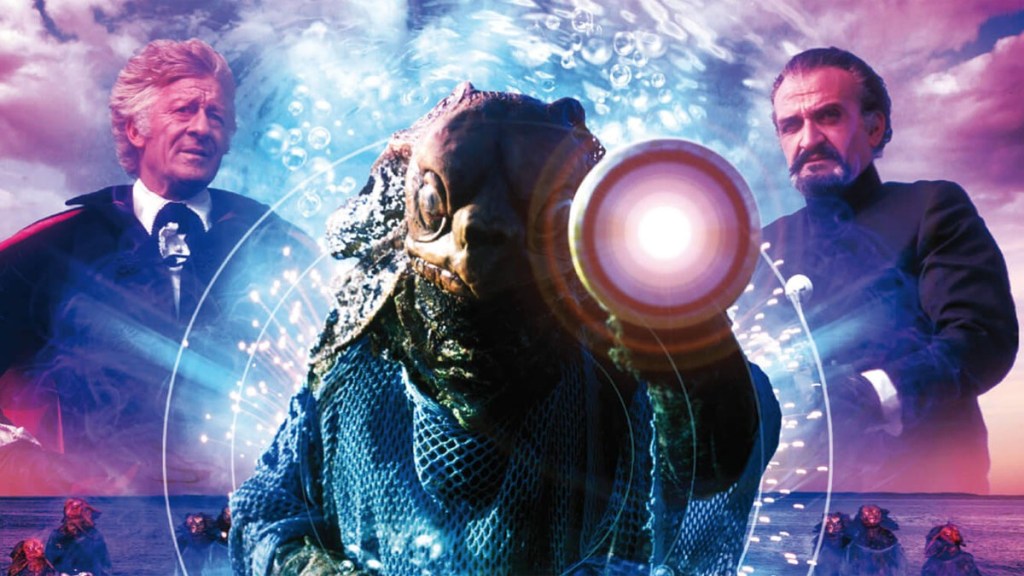
‘The Sea Devils’ is a sequel to ‘The Silurians’, Malcolm Hulke’s story of prehistoric lizard people who were the dominant species on Earth before humanity. That story was a more considered, intense tale, whereas this is more of a romp with depth. With aquatic lizards instead of underground ones, it also features the Navy rather than UNIT, and the Navy is credited with assisting the production.
Possibly because of this collaboration Jon Pertwee (formerly of the Naval Intelligence Division during World War Two) is clearly having a great time. Otherwise the tropes of the era (the Master, the military, meddling civil servants, Jo Grant gets to be resourceful and plucky, six episodes that could have been done in four) are all present and correct and ready to be argued at. It’s extremely comfortable, and directed with pace and energy by Michael E. Briant (he also knows when to slow down: the submarine attack, for example, where the sailors arm themselves and get into position, watching in horror and confusion as the door melts in front of them).
Hulke injects just enough detail into the characters to bring them to life, with the cast rising to the challenge. Colonel Trenchard, for example, feels like someone you could hear at a golf club complaining about immigration. The final two episodes dispense with any notion of depth and instead we get a big ol’ fight scene where the Navy gets to show off its machinery and the stunt team gets to show off its flips and falls.
This story also features an experimental synth score and a swordfight between the Doctor and the Master where one of them stops for sandwiches. The Pertwee era is pitched incredibly astutely. Sure, it’s absolute nonsense, but it’s amiable nonsense with teeth.
Fourth Doctor: ‘The Ribos Operation’
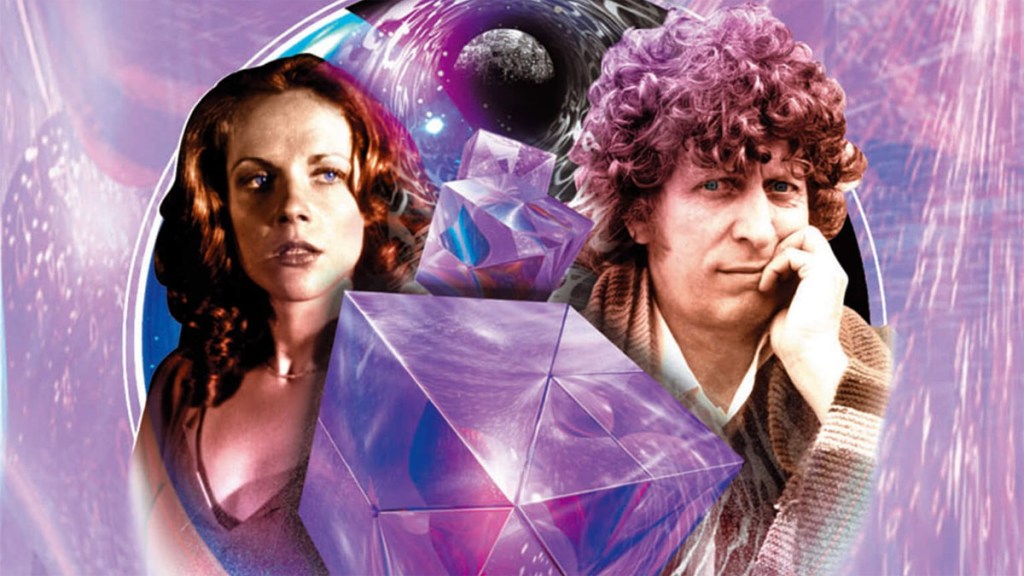
‘The Ribos Operation’ (or, as it should be known ‘The Best Fourth Doctor Story’) kicks off The Key to Time arc by systematically undermining the entire concept. The Doctor is given a mission by the White Guardian (ostensibly nicer than the Black Guardian but with a hint of unease to him), to find six pieces of The Key to Time and restore balance to the universe. The Doctor is given a new companion, a recent Time Lord academy graduate with all the book knowledge but no experience of the universe.
Robert Holmes’ script is layered, funny, and treads a perfect balance between anger and (unexpectedly) kindness. It hides its subtleties with engaging dialogue and characters, all played with the right levels of bombast. And such characters! Garron and Unstoffe, one of several Doctor analogues (he’s a big, booming and charismatic conman, with Unstoffe as his game but questioning companion who brings compassion that Garron can’t) are rightly regarded as the standouts, but it’s also worth noting the Graff Vynda K: a villain of the piece, a prissy warlord full of self-importance but never heard of before or since, a backwater despot bullying his way across a tiny corner of the universe. The Doctor’s solution to a vainglorious, self-mythologising monster? To blow him up. An interesting response on a number of levels.
There’s nothing wrong with this story. It’s superbly constructed and well-made. It’s a perfect anti-epic, and the only story I’ve rewatched on DVD as often as I did VHS.
Fifth Doctor: ‘Enlightenment’
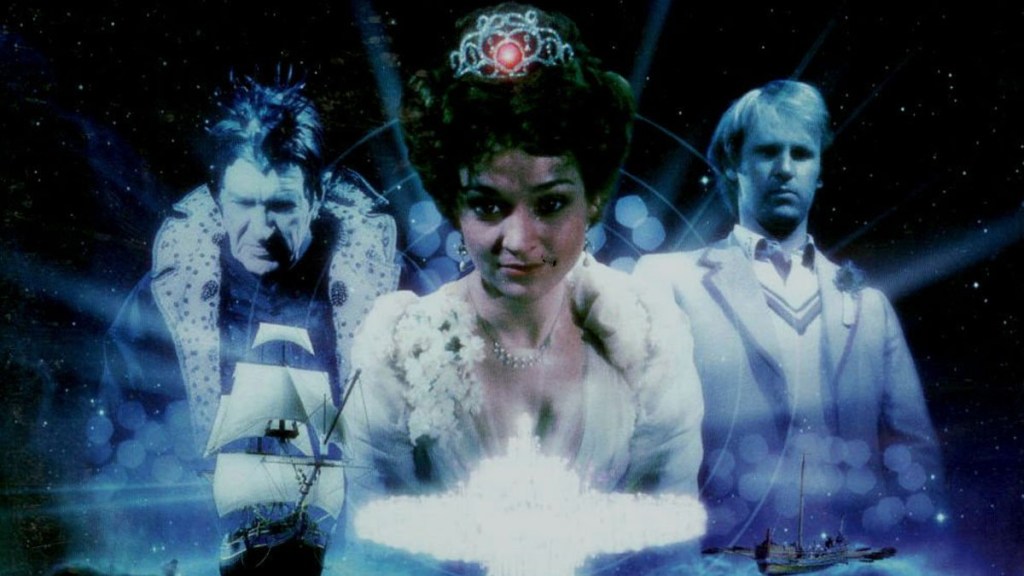
A wondrous peak in Eighties Doctor Who, starting as a cerebral science-fiction adventure before morphing into a cerebral science-fiction adventure that’s camp as tits.
You may recall Craig Ferguson’s description of Doctor Who as ‘the triumph of intellect and romance over brute force and cynicism’. ‘Enlightenment’ is a great example of this, with the romantic image of seafaring ships sailing through space corrupted by both the aloof officers and the Black Guardian’s influence. The Guardians here are ostensibly still representations of order and chaos, but mostly they’re ‘nice old man with bird on head’ and ‘ridiculous hyuk hyuking villain with bird on head’. The officer class are made up of Eternals – a race of godlike immortal beings who created this space race for entertainment – a great concept invented by writer Barbara Clegg after witnessing her rich relatives interact with her poorer ones at a family gathering.
The Doctor, through his intellect and faith in his companion, removes the corrupting forces. It’s not clear what happens to the surviving ships after the race is finished, but imagine finding one abandoned in space. It’s such a strong image in a story full of them. Clegg’s writing is full of great concepts and characterisation, including some excellent work with the regulars that makes them feel much more like real people than usual.
Sixth Doctor: ‘The Mark of the Rani’
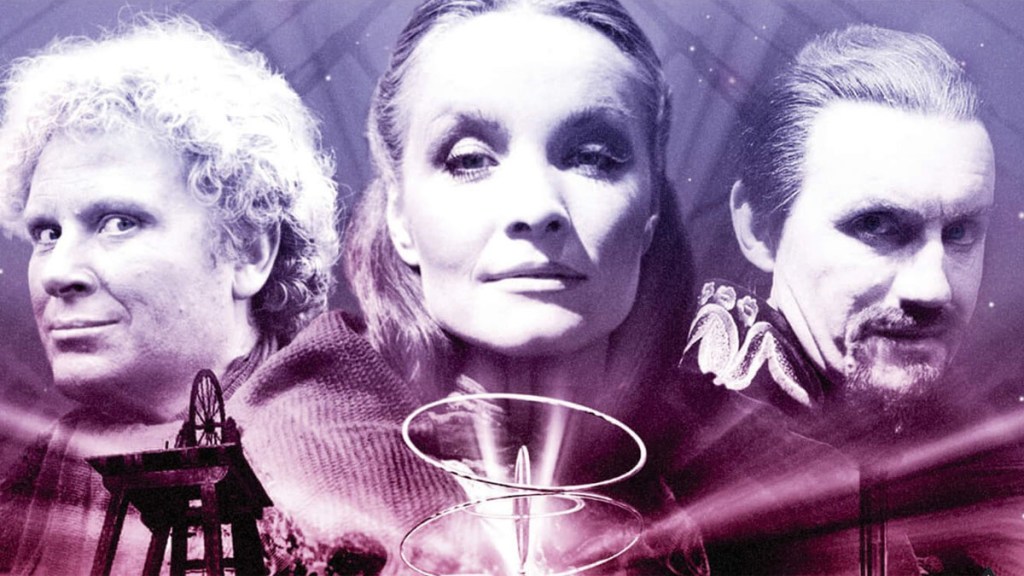
In which Time Lady the Rani experiments in a north-eastern mining town, causing violence to erupt.
First of all there’s the score, which is still of its time but feels distinctive due to its more tranquil ambient feel. It doesn’t sound dissimilar to The Microgram, someone who travels round the North East of England recording ambient noises and playing synths over them. There’s even one recorded at Beamish, which completes the loop here.
‘The Mark of the Rani’ is set in Killingworth, north of Newcastle, and technically so are the accents. They sound like someone went round RADA asking ‘Has anyone heard the song “Let’s Get Ready to Rumble” by PJ and *checks notes* Duncan?’
This slightly askew version of reality fits Pip and Jane Baker’s version of Doctor Who. Their debut script for the show establishes their style of endearingly serious batshit nonsense (landmines that turn people into plants, leading to the immortal line ‘The tree won’t harm you’). It’s like their stories are written by Wallace with minimal input from Gromit.
As a result ‘Mark of the Rani’ stands out amidst the aggressive stories surrounding it. It can be taken as merely enjoyably daft, but it’s also got some substance to it. Pip and Jane clearly remember Doctor Who as being the kind of show where the Doctor and his companion got on, so Peri is subjected to less arguing and is even defended (admittedly in terms of utility) by the Doctor.
The Rani is actually a character here, as opposed to her other appearances where she is simply A Villain In Doctor Who, and her presence immediately reduces Anthony Ainley’s Master to a supporting comic relief character. This suits him. When you’re standing in a field caked in shit pretending to be a scarecrow and laughing at passers-by for not noticing you clearly we can’t take you seriously anymore, so at least this story doesn’t pretend he’s a credible threat.
So on the one hand it’s daft, silly fun, but on the other it’s a mid-Eighties story featuring a chemist torturing Northern miners for her own gain. Guess what degree Margaret Thatcher graduated from Oxford with?
Speaking of Thatcher:
Seventh Doctor: ‘The Happiness Patrol’
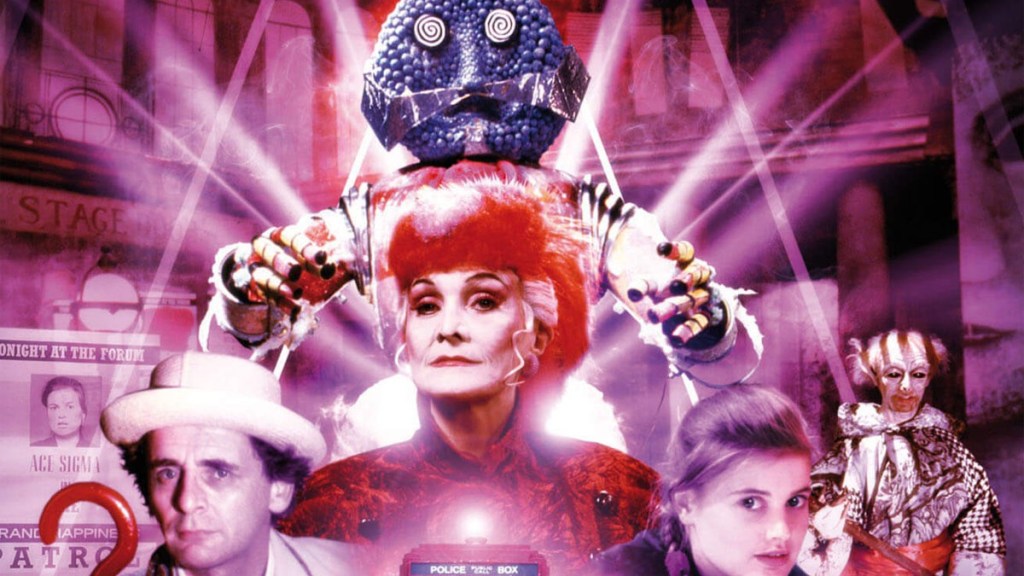
Within Doctor Who fandom, no one has ever said ‘Oh you don’t like the McCoy era? I’m sorry, you never mentioned it’, and ‘The Happiness Patrol’ revels in all the things its detractors hate about the era. It’s intentionally camp and uses symbolism rather than demanding to be taken literally, like a more confident version of Season 24. The Kandy Man is rightly noted as (visually) a Bertie Bassett parody, played as the ludicrous creature he undoubtedly is.
Knowing that it is restricted in what it can show in terms of violence, the show had now worked out how to be ostensibly child-friendly and incredibly morbid, hence the screeching sweetie-creature, the Day-Glo ray-guns, and the guy who gets drowned in a vat of jam. When you’re three and have never seen Doctor Who before the Kandy Man is downright terrifying, this bizarre monster who twists and turns and screams. This was my first experience of Doctor Who and, appropriately enough, it scared the hell out of me.
As an adult, I find it’s a pleasing return to the ‘Weird Troughton’ stories of the Sixties, the ones where the Doctor was an unassuming but powerful anarchic figure. Here we have a variation of this, where the Doctor has been trying to explore the universe but finds it full of monsters, and starts doing something about it.
Before Season 26 attempted something approaching realism, this story suits Ace and the Seventh Doctor who both feel like Children’s TV archetypes who have grown tired of their roles. Ace’s CBBC leanings (with crap swearing and Blue Peter badges) fits into this heightened reality better than she does a less tonally certain story (like ‘Battlefield’). ‘The Happiness Patrol’ feels like a combination of the different approaches of the McCoy era, a best of album with a life of its own.
Eighth Doctor: ‘Night of the Doctor’
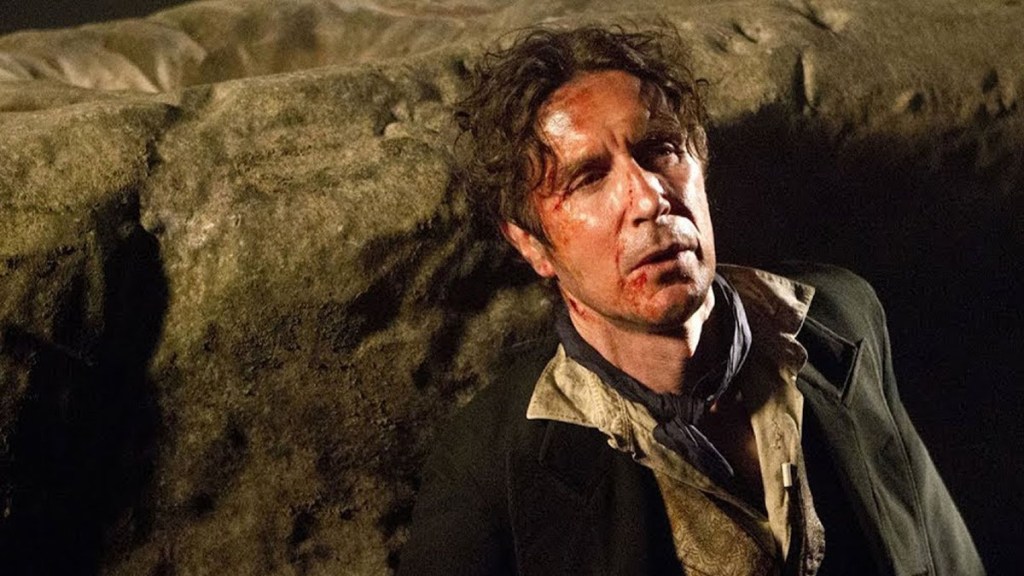
This is specifically because of the circumstances of broadcast, although it’s also a melancholy meta-commentary on the show’s cancellation and wilderness years in which Paul McGann gets to demand ‘Bring me knitting’.
It’s not merely the return of McGann to the onscreen role of the Eighth Doctor after 17 years, it’s that this was kept a surprise until the mini-episode was released in the build-up to the 50th anniversary special. It was such a treat, and I still remember the email I sent to the site’s TV editor when I watched it for Den of Geek. It read ‘OH MY F***ING GOD’ and was sent while the episode was paused just after the word ‘expecting’.
And so I told my friends. I know people watched this in work meetings on their phones under the table. It’s associated with a lot of feelings, not least building excitement. This one is connected very clearly to a moment of shared joy.
Ninth Doctor: ‘The End of the World’
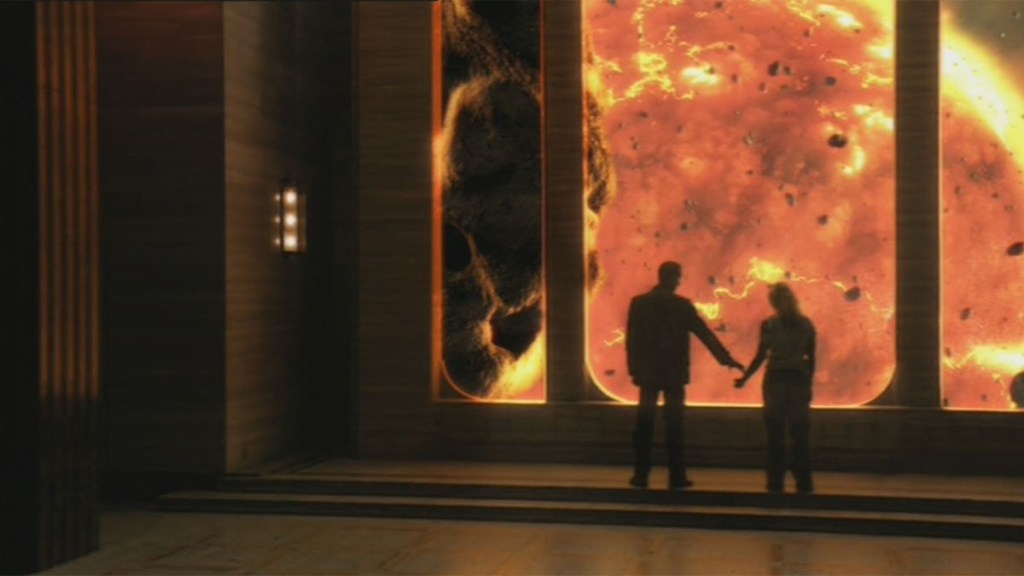
While ‘Rose’ is rightly adulated as bringing Doctor Who back to a large prime time audience, ‘The End of the World’ had a different job to do. Viewing figures went down for this episode after over 10 million people watched the series opener, but went up again after this, suggesting positive word of mouth from this episode, consolidating the success of ‘Rose’.
The production team were aiming to use this episode to show off how Doctor Who could look in 2005, with hundreds of CGI shots and dozens of aliens gathered together. It also showed the new Doctor’s emotional distance, in that his idea of showing off to his new companion is to take her to see her planet getting destroyed.
We also get, in a late addition to the script, Russell T. Davies’ knack for making the alien familiar with the character of Raffalo (‘You’re a plumber?’) who is almost immediately killed, further demonstrating RTD’s knack for knowing which character’s death will have the most impact (and if you’ve not read his novelisation of ‘Rose’ you really should if just for Clive’s death in prose form. Honestly it’s incredible).
‘The End of the World’ is a comforting reminder of the nascent excitement surrounding the 2005 series, that feeling of turbulence that eventually settled because of the strength of these early episodes.
Tenth Doctor: ‘The Fires of Pompeii’
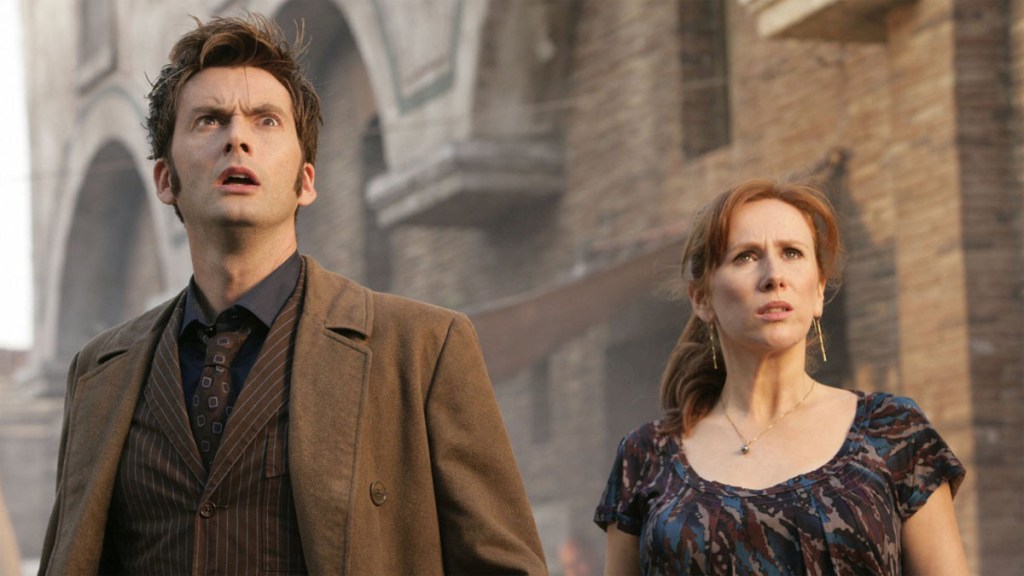
The episode itself has a soothsay-off between Metella and Lucius to set up a plot point and the series arc, and the first TARDIS trip for Donna as a full-time companion. You immediately get to see the strengths that Catherine Tate is going to bring to the series, not merely her comic and dramatic ability but the way Donna is able to stop the Tenth Doctor from his worst impulses, and by bluntly dismissing the notion of fixed points in history meaning just allowing bad things to happen. This is, for me, the best episode in the first half of Series 4 by a long way.
Sure, there’s a colossal death toll here which is far from comforting, but as ever nostalgia and context plays a huge part here. This was an episode broadcast on the night of our fan club’s night out, a phase of my fandom that turned me from someone who liked Doctor Who in primary school into an adult fan. This has, overall, been worth it. So what this story reminds me of is, following on from ‘The End of the World’s establishing the series, is the initial excitement and patterns of Russell T. Davies’ series where he set up some key words or phrases early on and fandom tried to work out their significance, resulting in the heady days of someone saying Norman Lovett was going to play Davros in ‘The Parting of the Ways’ on IMDb.
Eleventh Doctor: ‘A Christmas Carol’
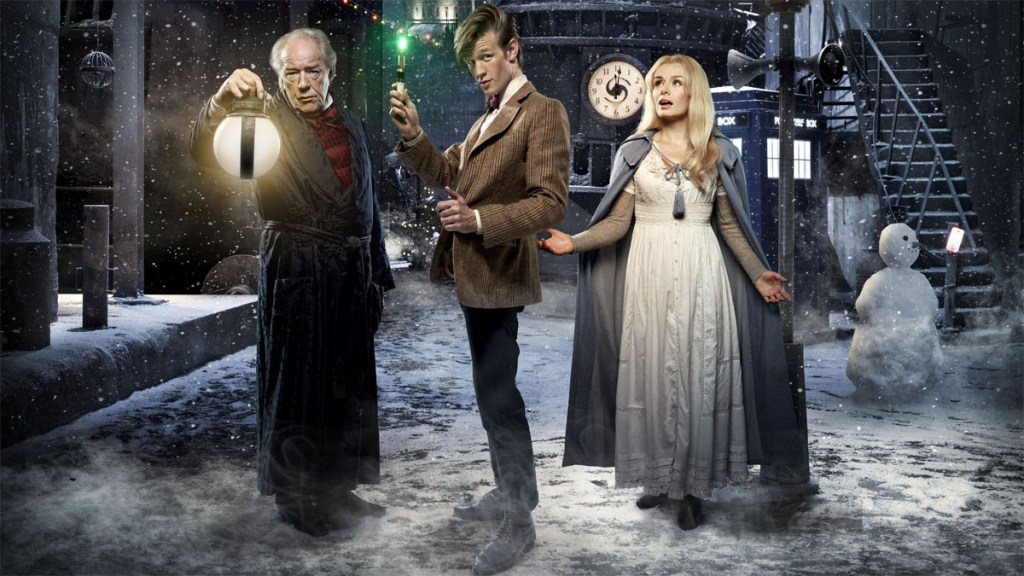
Quite a few contenders here, but I’ve gone with my favourite Christmas Special because these episodes are often Doctor Who at its broadest, suitable for the half-cut who dwell in food-comas. This episode is one of the last of these stories, before the Christmas Specials became steeped in the main continuity of the series. It’s also a great example of the childlike impulsiveness of Matt Smith’s Doctor before he became more of a teenager in Series 6. It’s great fun and the riffing on Dickens lands really strongly for people like me, who often respond more to a strong realisation of an idea than they do pathos.
This story is designed to be comfortable and succeeds by establishing what a Steven Moffat Christmas Special will look like: lots of time-travel, obviously, but also a big budget version of ‘The Happiness Patrol’s daring the audience to find it too ridiculous. As a result we get a remix of A Christmas Carol featuring flying sharks pacified by a mezzo-soprano, with the joy of these disparate elements coming together through that most underrated of Moffat staples – a grumpy old man learning to let go while being dragged through the sky by animals who usually lack the power of flight.
Twelfth Doctor: ‘Mummy on the Orient Express’
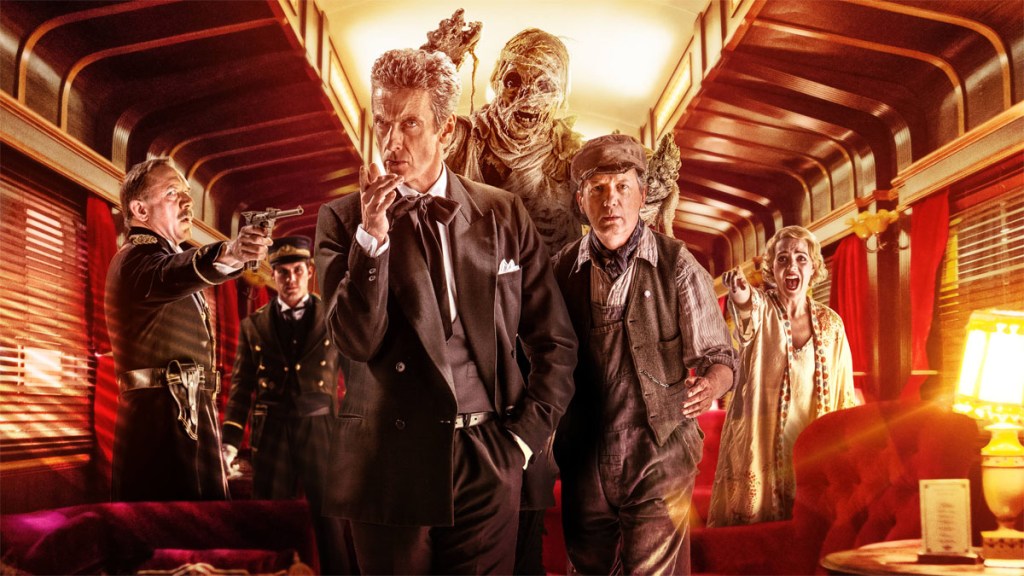
With Capaldi realising his initially abrasive take on the character was too much, this story relieved the tension that had been building with the Doctor’s behaviour, allowing him to explain himself and setting up the arc that culminates in ‘Hell Bent’.
Once this was broadcast I breathed a sigh of relief. Despite wanting it not to be the case I’d had to reach for the positives in the Capaldi era thus far; with the exception of ‘Listen’ the stories had felt like treading water until ‘Kill the Moon’ split the room. Even if you don’t like it (and I mostly don’t) that was the first story that felt like it was trying something different and paved the way for the increased complexity of the Twelfth Doctor’s character. Ultimately what the show needed at this point was a run of good stories, and – appreciating some people don’t get on with ‘Forest of the Night’ (and I mostly do) – this was the start of a really strong run.
‘Mummy on the Orient Express’ is a mash up of concepts that Doctor Who excels at, with an enjoyably horrific Mummy and the actual countdown to its victims’ demises contributing to making each death count. This is harder than it looks, the balance between violence and pathos taking into account the family audience, but the combination of ideas really makes them land as brutal without gore. By putting the Doctor through this writer Jamie Mathieson manages to explain his apparent heartlessness as weariness at making tough choices, but being unable to resist getting into situations that require them. The path is now clear from here to the heights of ‘Hell Bent’ and ‘The Doctor Falls’.
Thirteenth Doctor: ‘It Takes You Away’
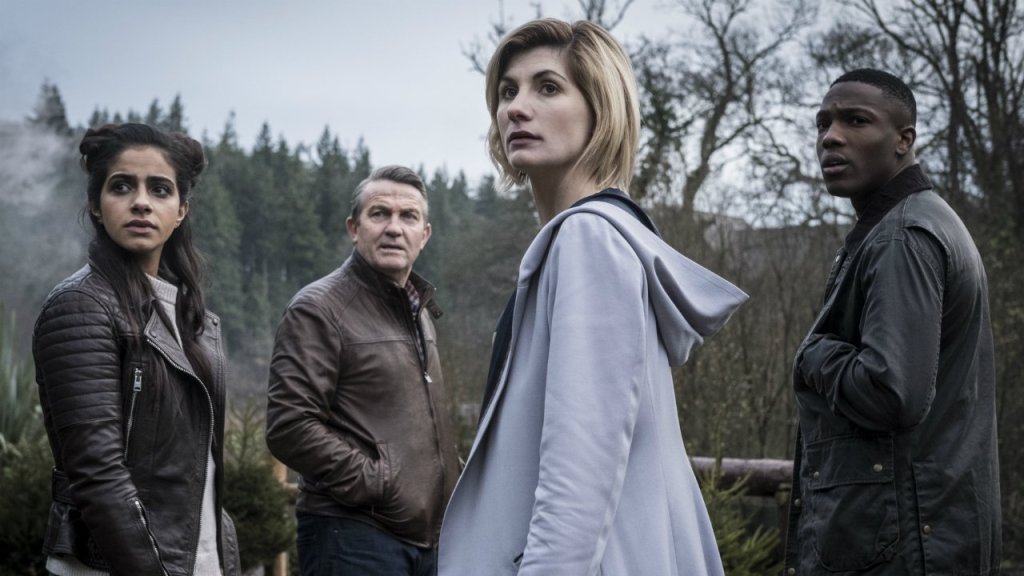
Obviously there are fewer Jodie Whittaker fewer stories to choose from, and for me it has to be one from Series 11 because that felt like a palette cleanser for an approach to Doctor Who that never manifested. For all its ups and downs, limiting continuity references and focus on new characters or threats felt like a good move. Certainly the guest writers all provided solid stories, and while the series didn’t soar for me it felt like a good platform to improve from, which is partly why Series 12 was so disappointing (it felt like it addressed problems that weren’t there, ignoring the ones that were).
‘It Takes You Away’ is frequently surprising, offering a simple blunt horror of loss (the childlike refrain of the title, the fear of absence) combined with endearingly outlandish performances by the actor Kevin Eldon and a sentient universe manifesting as a talking frog. It allowed Jodie Whittaker a rare success in negotiating her way out of a situation, and progressed the character arc of the series with Ryan and Graham’s changing relationship. It’s obviously imperfect (ideally, Hanne’s Dad’s manipulative behaviour would be properly addressed) but it’s also imaginative, moving, and weird, and these are three things I really want Doctor Who to be.
Share your go-to Doctor Who comfort viewing episodes below.

